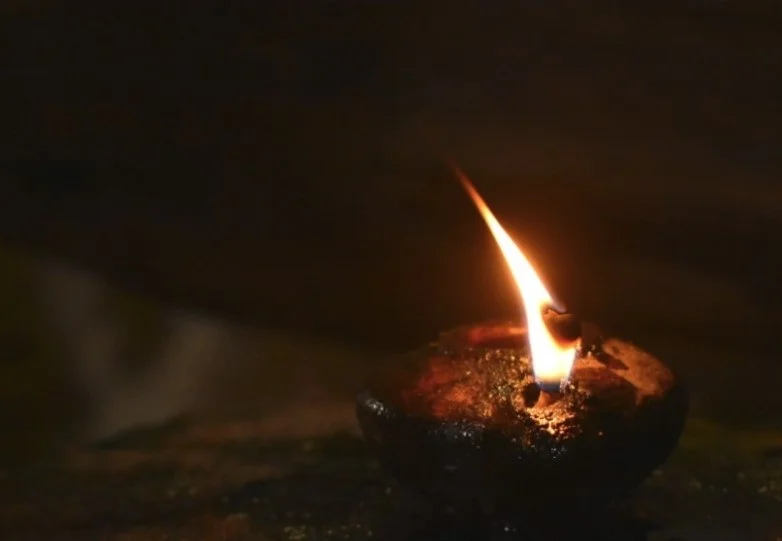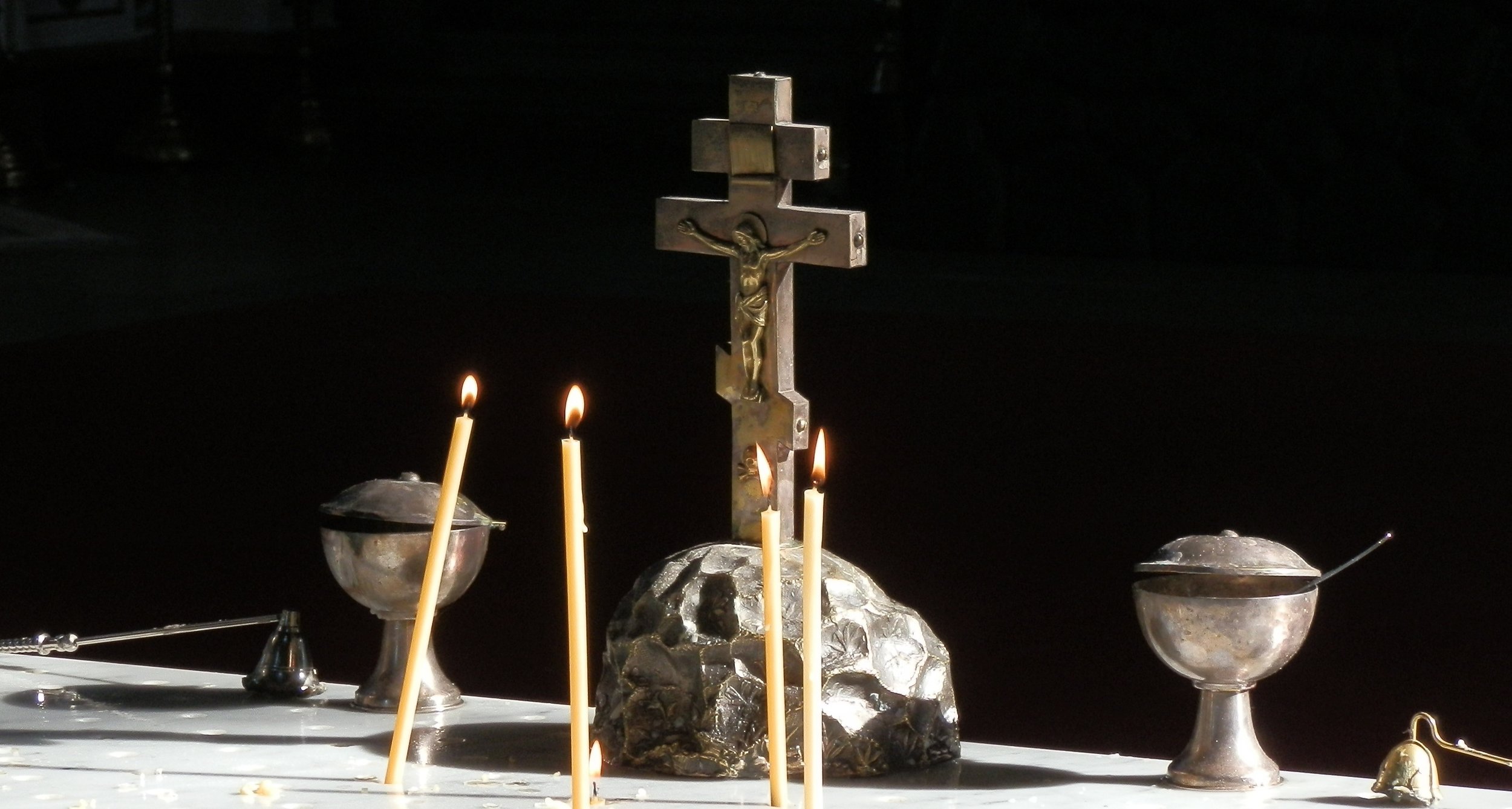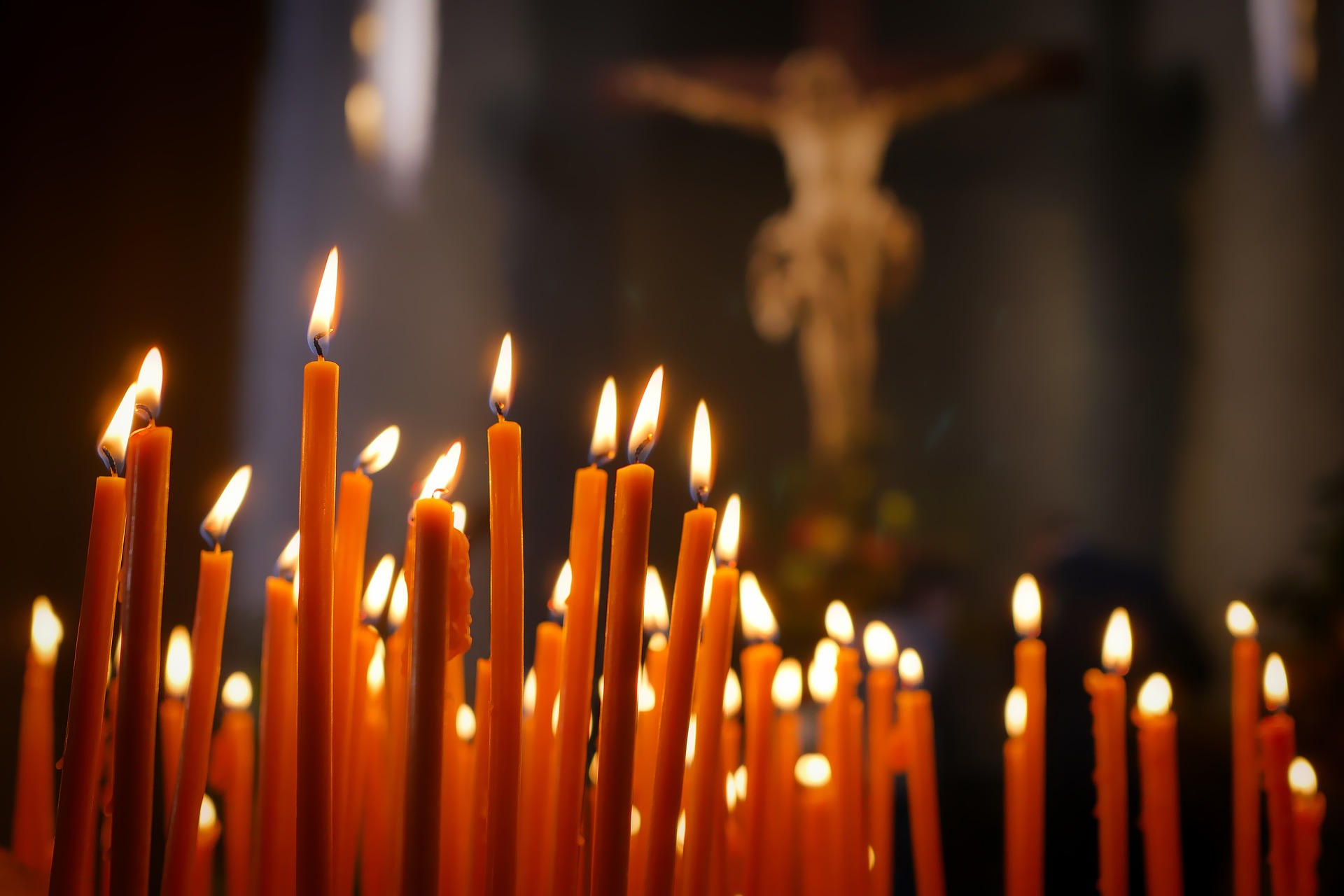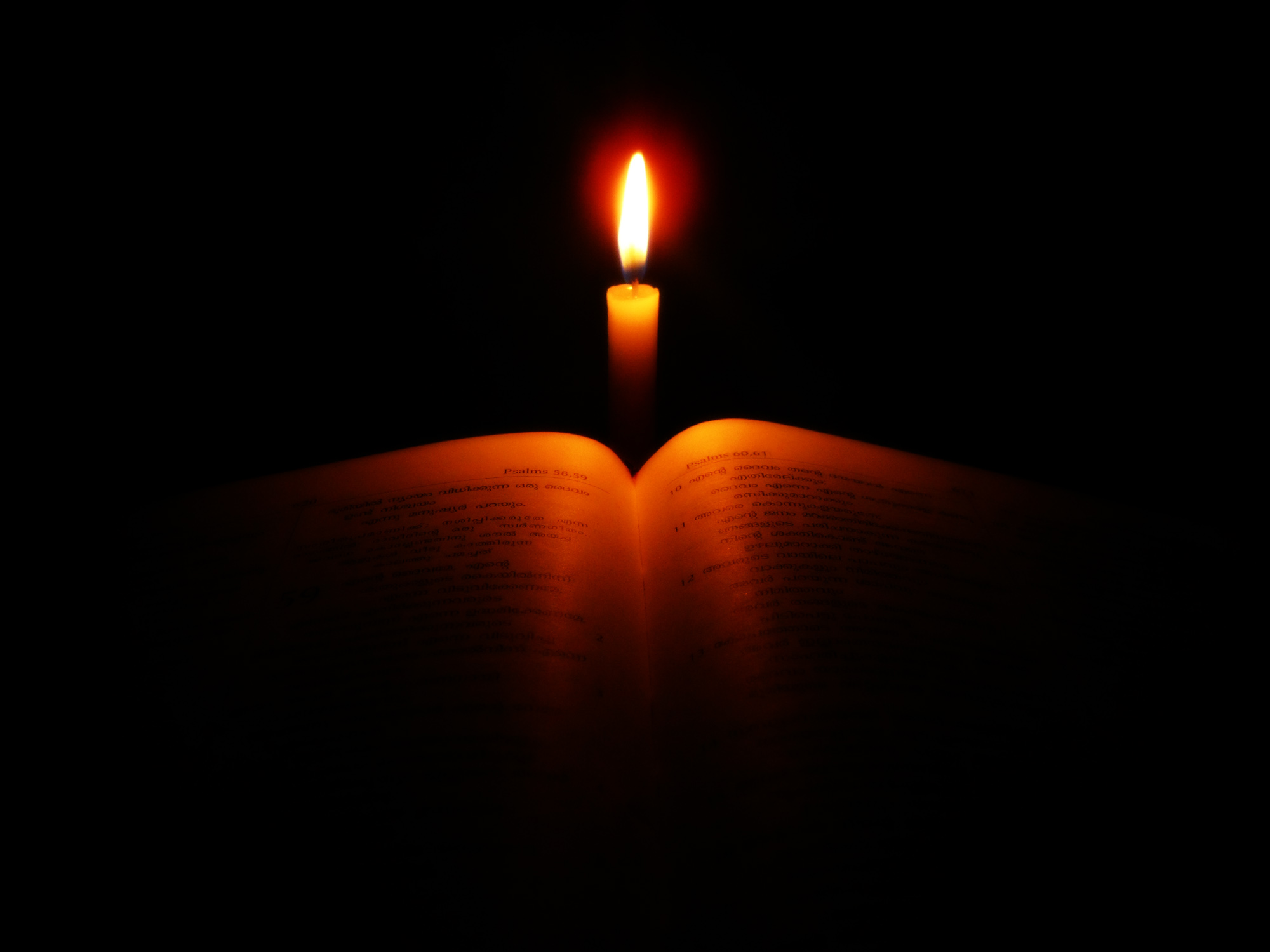Healing Atonement
Maximus the Confessor (c.580 - 662 AD)
An old clay oil lamp from Nazareth, Israel. Photo credit: Olivia Armstrong.
The Writings of Maximus the Confessor
Maximus the Confessor, Ad Thalassios, Question 26.9 says,
"To be sure, Scripture is accustomed to identify Pharaoh with the devil, to the extent that he destroys Israel, but it also identifies him with the law of nature, when, through divine dispensation, Joseph is subjected to him and thus signifies, prophetically through his own person, God the Word, who willingly placed Himself in slavery to our nature and passions, but of course without sin."
Maximus the Confessor, Ad Thalassios, Question 59.8 says,
"I mean the divine and incomprehensible pleasure of God, which God inherently brings about by nature when He unites Himself according to grace to those who are worthy. When, on the other hand... I mean the privation of grace producing unspeakable pain and suffering, which God is accustomed to bring about by nature when He unites Himself contrary to grace to those who are unworthy. For God, in a manner known only to Himself, by uniting Himself to all in accordance with the quality of the disposition that underlies each..."
Maximus the Confessor, Ad Thalassios, Question 59.9 says,
"To be sure, the resurrection of virtue in relation to choice, or of choice in relation to virtue, comes about naturally, obviously when it is accompanied... by the "sufferings" of nature "of Christ," that is, undertaken for Christ, which very sufferings the Holy Spirit "revealed" in advance to the prophets, so that they might come to share connaturally in the likeness of the death of Christ through the mortification of sin and through the actual resurrection of virtue."
Maximus the Confessor, Ad Thalassios, Question 59.10 says,
"...Christ, who by the power of His incarnation assumed the whole of human nature. For Christ, being God and man by nature, is inherited by us as God in a manner transcending human nature by means of grace according to an ineffable participation: and for our sake, and in our own form as man, he makes our nature His own, and thereby inherits Himself jointly with us according to His inconceivable condescension."
Maximus the Confessor, Ad Thalassios, Question 64.7 says,
"As Scripture says: "He is the one who, for the joy that was set before Him, endured the cross, despising the shame." He even willingly descended into the "heart of the earth," where the Evil One had swallowed us through death and was keeping us prisoners; and when He snatched us away through the resurrection, He led up the whole of our captive nature to heaven. And He is truly our rest, and our healing, and our grace. Rest, because through His brief life He abolished the law of our dire slavery to the flesh. Healing, because through His resurrection He healed us from the wound of death and corruption. Grace, because through faith He distributes adoption in the Spirit of God the Father, and the grace of divinization to each who is worthy. For it was necessary, truly necessary, for the Light and Power of God to enter into that land of darkness and eternal bars, so that, dispelling the darkness of ignorance (inasmuch as He is the Light of the Father), and breaking the bars of evil (inasmuch as He is the enhypostatic Power of God), He might free our nature, which the devil had cruelly bound in these conditions, giving it the inextinguishable light of true knowledge and the unshakeable power of the virtues."
Maximus the Confessor, Ad Thalassios, Question 64.28 says,
"How is God being truthful when He gives the order for the destruction of the city but then does not destroy it? To this person we respond by saying that God in truth both destroys and saves the same city: the former, by making it desist from its error; the latter, by bringing about its acquisition of true knowledge - or rather He destroys its error through the revitalization of its faith, and realizes its salvation by the death of that error. Now Nineveh translated means "parched blackness" and "smoothest beauty." In agreement with the meaning of this translation, the Lord, after His three-day burial and resurrection, destroyed the "parched blackness" of error that had accrued to human nature through the resurrection, and renewed the "smoothest beauty" of that nature through the obedience of faith. And, again, through the resurrection, He showed forth the beauty of nature's incorruptibility to be exceedingly smooth and in no way coarsened by anything material. What is being said here may also be suitably applied to our common human nature, to the holy Church, and to each individual soul, which through faith and a good conscience has set aside the "earthly image" of the old Adam, and clothed itself in the "image of the heavenly Adam.""
Maximus the Confessor, Ad Thalassios, Question 65.24 says,
"He is also our "atonement", for, having become like us, He dismissed in Himself the charges against us, and by the gift of grace in the Spirit, He divinized our nature which had sinned... Now, that God is delighted by the sacrifice of irrational animals and with the sprinkling of their blood, and that He somehow recompenses and pays for such worship by forgiving sins is not something we believe if we approach Scripture from the point of view of nature, lest we unwittingly worship an impassioned God, for we will have made Him greatly and passionately desire things that, when we see human beings desire the same things in an impassioned way, we condemn them for their lack of temperance and self-control. Instead, we recognize not only the mortification of the passions - when we slay them "with the sword of the Spirit, which is the Word of God" - as spiritual sacrifices, but also the voluntary offering of the whole movement of our carnal existence, as if it were blood, along with a way of life in accordance with philosophy, and indeed all of our natural powers, consecrated to God and consumed in the fire of the grace of the Spirit, rising up to divine rest."
More Resources on Maximus the Confessor
Metropolitan Paul Yazigi, The Church's Unity According to Maximus the Confessor. Pravmir, Feb 11, 2016.
Paul M. Blowers, Maximus the Confessor and John of Damascus on Gnomic Will in Christ: Clarity and Ambiguity (pdf file) raises interesting questions about Maximus' earlier and later usages of gnomic will and, if not with this term, then how to describe Jesus' struggle against the pathological passions.
Cocceius, The Two Energies of Christ. Cocceius blog, May 30, 2016. Cocceius makes interesting notes on gnomic will and other terms used by Maximus.
Jesse Dominick, Man in Creation: The Cosmology of St. Maximus the Confessor. Orthodox Christianity, Aug 26, 2016. A short intellectual biography
David Bradshaw, St. Maximus on the Will - Natural and Gnomic. Eclectic Orthodoxy blog, Aug 3, 2016.
David Bradshaw, Is There No Repentance After Death? Another City, Aug 16, 2019. Bradshaw, a patristics scholar, gives helpful remarks, drawing especially from Maximus the Confessor.
David Bradshaw, No Repentance After Death: Facing Hard Questions about Salvation. Orthodoxy and Heterodoxy | Ancient Faith, May 26, 2020. Bradshaw examines Clement of Alexandria, Gregory of Nyssa, John Chrysostom, Theophylact, Dorotheus of Gaza, Dionysius the Areopagite, and Maximus the Confessor.
Fr. Maximos Constas, Did Christ Repent? The Greek Fathers and the Vicarious Repentance of Christ (Part 2). The Pappas Patristics Institute, Oct 21, 2021. Constas argues for the unfallen humanity view, and argues that Maximus the Confessor held it.
Fr. Stephen Freeman, Saving Knowledge and Blessed Ignorance. Glory to God for All Things, Aug 2, 2022. Uses Maximus’ language and categories of “natural will” and “gnomic will” in a pastoral context.
Marcus Plested, Saint Makarios and the Mystagogy of Saint Maximos the Confessor. The Pappas Patristics Institute, Dec 17, 2022. A 31 minute video.
Sources of Atonement Theology
These resources explore the foundation of “Medical Substitution” as the best understanding of the Bible, and the original understanding of the church. There are also links to books, web articles, etc. from representatives of the three broad Christian traditions.





